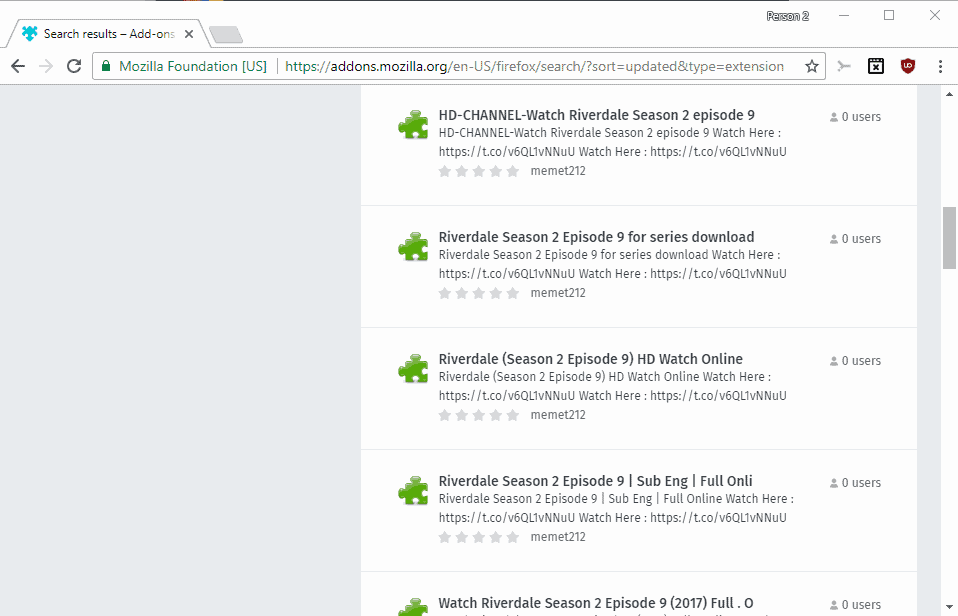Download Addon For Mozilla
With the release of on November 14, 2017, we officially entered a WebExtensions-only world for add-on development. Uriah Heep Live Rapidshare on this page. While that event was certainly the, quietly entered Beta and a host of new APIs and improvements landed. As always, documentation for the APIs discussed here can be found on. Additional Theme API The API around themes continues to grow, allowing you customize even more of the browser appearance. In Firefox 58, you can now: • Change the color of the for the toolbar. • Use as an alias for colors.toolbar_text to better support porting themes from Chrome to Firefox.
Add-ons allow developers to extend and modify the functionality of Firefox. Unable to install add-ons (extensions. Unable to install add-ons (extensions or themes). Certain add-ons have been blocklisted by Mozilla for being unsafe.

• Use to get the ID of the current theme (on a per window basis, if desired). • Listen for to know when a static theme is installed or uninstalled, or a dynamic theme is updated. Reader Mode API Added to Tabs The API available for interacting with tabs continues to grow. Firefox (or reader mode) strips away clutter like buttons, ads and background images, and changes the page’s text size, contrast, and layout for better readability.
An addon for Firefox and Flock which enhances Google, Yahoo! Search and Bing allows quickly searches of various search engines and other features. Available for.
It can even read the page out loud to you, if you want. The image below shows a page that can be viewed in reader mode, indicated by the page icon in the URL bar (circled in red). Clicking on the icon puts the page in reader mode, removing most of the page elements except the text and adding buttons to the left-hand side that modify the reading experience. This powerful browser feature is now available via the WebExtensions API. • – boolean value shows if a tab is an article and thus supports reader mode • – boolean value reports if a tab is currently in reader mode or not • – toggle a tab in or out of reader mode (isArticle must be TRUE to have any effect) • – new parameter that determines if a new tab should be created and initially displayed in reader mode • – a tab will notify you when it goes into and out of reader mode Improved webRequest API Extensions can now easily get the entire URL ancestor chain, even in an HTTP environment. WebRequest.onBeforeRequest() now includes another parameter in its callback object called.
This is an array that contains information for each document in the frame hierarchy up to the top-level document. Additionally, to enable proxy authorization to work smoothly, webRequest.onAuthRequired(). If an extension has the correct permissions, it will be able to use onAuthRequired to supply credentials for proxy authorization. Flexible XHR and Fetch Headers When a content script makes requests using the standard or API, the and headers are not set like they would be when requests come from the web page itself. This is often desirable in a cross-domain situation so that the content script does not appear to come from a different domain. However, some sites only allow XHR and fetch to retrieve content if the correct Referer and Origin headers are set. Starting in Firefox 58, the WebExtensions API permits the use of to perform requests that look as if they were sent by the web page content itself.
Improved Content Security Policy (CSP) Handling Work also continues in the area. Starting with Firefox 58, the CSP of a web page to content inserted by an extension.
This allows, for example, the extension to load its own resources into a page. This is a fairly large effort requiring some substantial architectural work.
In Firefox 58, the of this work has landed, permitting basic injection of content generated by DOM APIs. There will be follow-ups for parser-generated content and inline stylesheets and scripts. Setting the Default Search Engine Using, an extension can now install a new default search engine.
To protect the user, this cannot be done silently and the user will see an additional dialog that prompts them to confirm the change. The user will also see if their default search engine has been overridden in the Options (about:preferences) page, which is explained in more detail below. User Notification of Extensions Overrides As the scope and power of the WebExtensions API increases, it is important to maintain the user’s security and privacy. In addition to the permission dialog that a user sees upon installation, Firefox tries to make sure that users are aware of which parts of the browser are under the control of an extension, and provide a way for them to revert back to default behavior, if desired.